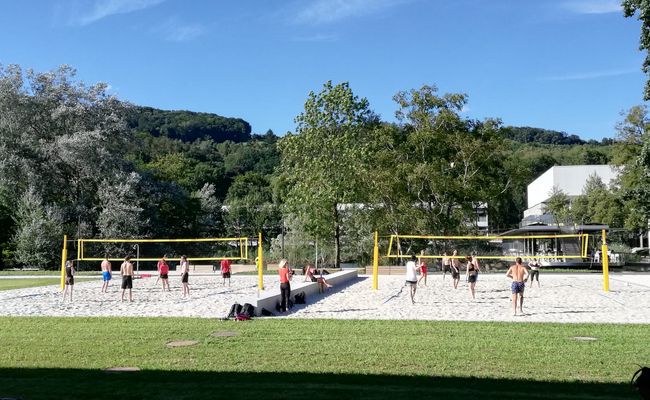Become a medical engineer and improve diagnostics, develop various treatments, contribute to healthcare services, assist in rehabilitation, and preventive healthcare and help improve the quality of life for many.
The Master's degree program in Medical Engineering will expand your expertise in a minimum of one area of technology, such as:
You can also opt to specialize in human medicine and other subject areas (law, business, natural sciences, molecular biology), each of which are associated and connected to medical technology.
Key Facts
Degree
Dipl.-Ing.
Duration
4 semesters
ECTS
120 credits
Language
German (Level B2), individual courses in English
Location
Linz
Program
Full-Time
The Master's degree program in Medical Engineering gives you an opportunity to study at the Linz Institute of Technology (LIT) and at the JKU's Faculty of Medicine. It is a unique combination that enables you to:
As part of the Master’s degree program, students are required to complete courses totaling 120 ECTS credits in the following areas:
| Subject Areas | ECTS Credits |
|---|---|
| Safe Medical Technology | 10 |
| Project Internship in Biomedical Engineering | 3 |
| Electives | 60 |
| Master's Thesis (incl. Master's Thesis Seminar) | 28 |
| Master's Examination | 2 |
| Autonomous Coursework | 17 |
If you wish to learn more about the subject areas and the program structure for Medical Engineering, we recommend looking at the curriculum.
The Master's degree program in Medical Engineering takes an in-depth look at medical engineering (development, manufacturing, and evaluating medical devices), such as:
From a technological standpoint in medicine, you can also choose to specialize in human medicine or subject areas such as law, business, natural sciences, or molecular biology.
A Master's degree in Medical Engineering gives you an opportunity to apply scientific methods and independently solve challenges in the field of medical technology and related fields. You focus on:
Graduates of the Master's degree program in Medical Engineering are highly sought after as experts in the field and in management as a
Your expertise and skills are also needed in the following industries:
On average, graduates in this field are able to find a job approximately one month after completing the program. After 3 years on the job, their average monthly gross salary is € 4.189.

In order to be admitted to the Master's degree program in Medical Engineering, you must fulfill the following requirements:
Applicants will not be subject to supplementary examinations for admission to the program providing they hold an undergraduate degree in the same subject area, or an academic degree program considered comparable in content and scope awarded by a recognized institution of higher education in Austria or abroad, and in which examinations from the subject areas below have been successfully passed to the minimum amount of credits as indicated:
Prospective applicants who do not have the required academic background may be required to take and pass supplementary examinations of up to a maximum amount of 40 ECTS credits. These are to be completed by the end of the second semester of the program. Contact the Admissions Office at the JKU for additional information.
Still Have Questions?
Then contact us!
Department
Admissions Office
Building
Do you need help registering or do you have questions about the program? Contact the JKU's Office of Student Information and Academic Advising (SIBS)!
After completing your graduate degree, you can continue your education by pursuing an advanced degree:
You might also find these academic degree programs interesting:
